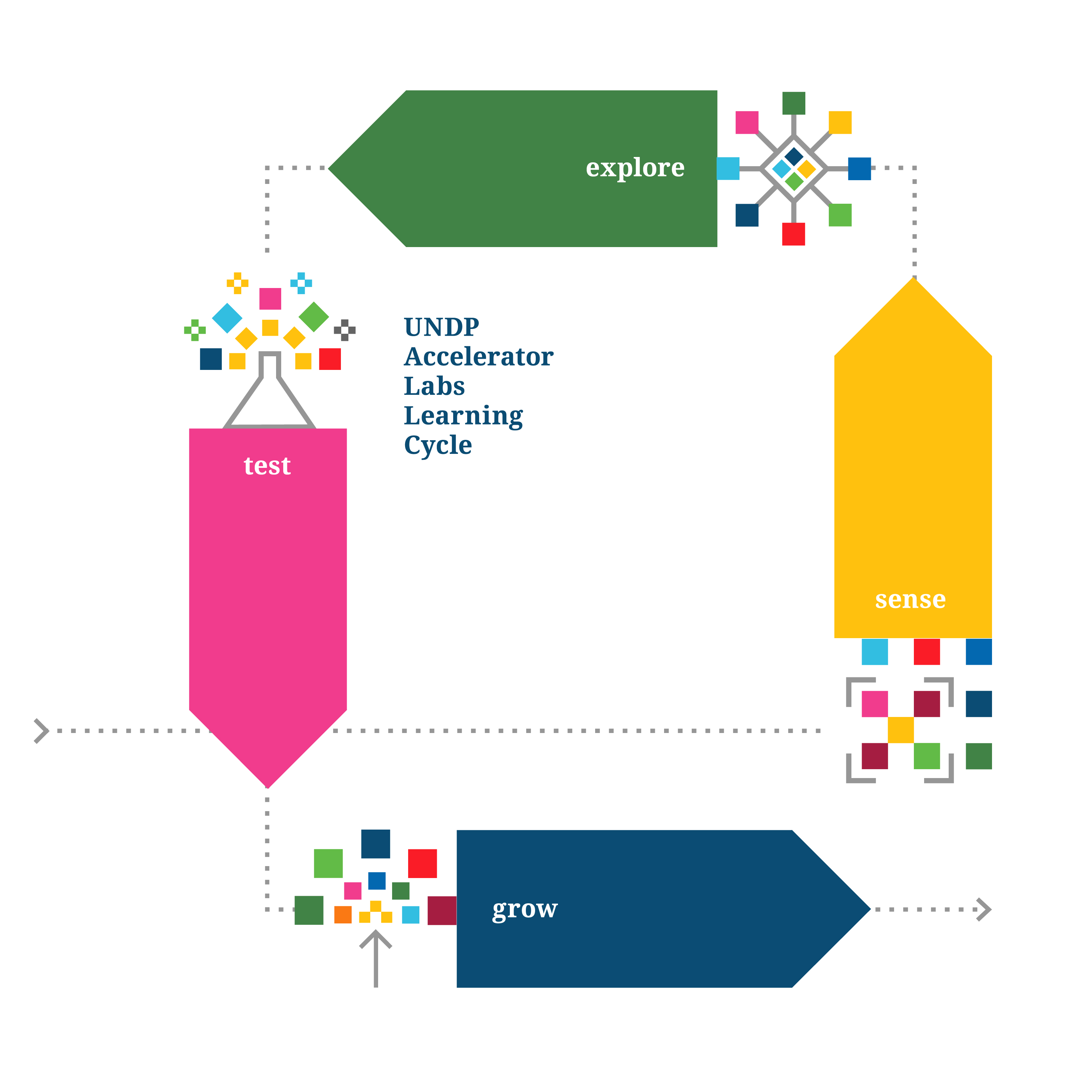About us
Who are we?
In 2019, UNDP built the world’s largest and fastest learning network on sustainable development challenges thanks to the Federal Ministry for Economic Cooperation and Development of Germany and the Qatar Fund for Development as founding investors, and support from Italy and UNDP core donors.
We started with 60 Lab teams covering 78 countries and are now expanding to 91 Labs covering 115 countries. We create actionable intelligence, test solutions with national partners. It’s early, but so far we’re winning awards. For example, Apolitical's Global Public Service Teams of the Year Award.
We are part of UNDP’s global policy teams and country offices. Our 270 Lab team members bring bright, unusual talent into the development sector. 72 percent of us have experience in prototyping; 54 percent can work with citizen generated data; and 29 percent can perform tasks related to artificial intelligence and machine learning.
Aligned with UNDP’s vision of gender equality, more than 53 percent of our new innovation experts are women, driving our exploration and elevation of women-led solutions.
44 percent of the lab teams are repatriates — a source of pride for us that our Labs are attracting national talent back to developing countries.
We are part of UNDP’s drive to be an incubator for the future. To accelerate progress towards the 2030 Agenda, we need to be fast and curious. The Accelerator Labs are designed to close the gap between the current practices of international development in an accelerated pace of change. They model a new capability to make breakthroughs on the future of development: inequality, decarbonization, the 4th industrial revolution and new forms of governance.
Our offerings:
Our Accelerator Labs choose the problems that they solve together with national partners. Here’s a quick look at some of our offerings.
- Solutions Mapping: In Serbia, we are using new sources of data to help the central government understand drivers of brain drain. In Uganda, we are addressing deforestation issues by convening representatives from government and private companies managing natural resources. And in the Congo, our “Caravan of Innovation” is touring remote regions of the country to develop a comprehensive database of solutions developed by local citizens - the first of its kind in the country.
- Testing: Our Namibia team is testing out electric vehicles to reduce costs of ownership and explore options for using the cars to provide energy backup during local outages. Our Lab in Bosnia and Herzegovina is conducting an experiment that bans single use plastics in the UN House as a way to learn what works and what does not before scaling with national partners. And the UNDP India Accelerator Lab has landed a partnership to test out an air purification technology developed by a Singapore based startup.
- Experimenting: Our Lab colleagues in the Democratic Republic of Congo are testing whether homemade charcoal bricks can cut on deforestation and contribute to the reduction of gender-based violence. In Viet Nam, our quick experiments showed what kind of recycling initiatives citizens respond to best, saving the local government money before large scale investment. In the Caribbean, the Labs are exploring whether sargassum seaweed could be used as a biodegradable alternative to single-use plastic.
How we learn:

Our learning cycle in action
UNDP Accelerator Lab teams are helping UNDP and partners close the gap between the current practices of international development and an accelerated pace of change. To do this, the Labs are creating new service lines in development that are open‑ended and safe to fail. The Lab network does this by iterating in a cycle of sensing, exploring, testing and growing.
- SENSE is about understanding what are emerging challenges and opportunities in the local context and determining where we need to focus our attention.
- EXPLORE is about better understanding the challenge and looking for solutions, particularly by looking at how citizens are already addressing these challenges and opportunities.
- TEST is about designing a portfolio of potential solutions to intervene at multiple points in the system and continuously testing them until we are confident they can work.
- GROW is about handing over the portfolio of solutions, advocacy for policy change or spinning solutions off as private ventures.
Get Involved
Our partners are at the heart of the UNDP Accelerator Lab Network. They provide strategic advice, expertise and financial resources. They extend the capabilities and reach of the Network and help direct it by investing in this joint venture. Our partners also benefit from insights into emergent demands around complex development challenges.
We’re always looking for partners to join us in investing and contributing knowledge to this global effort.
If you would like to collaborate with us, please email us at accelerator.labs@undp.org
And join our conversations online via @UNDPAcclabs

 Locations
Locations